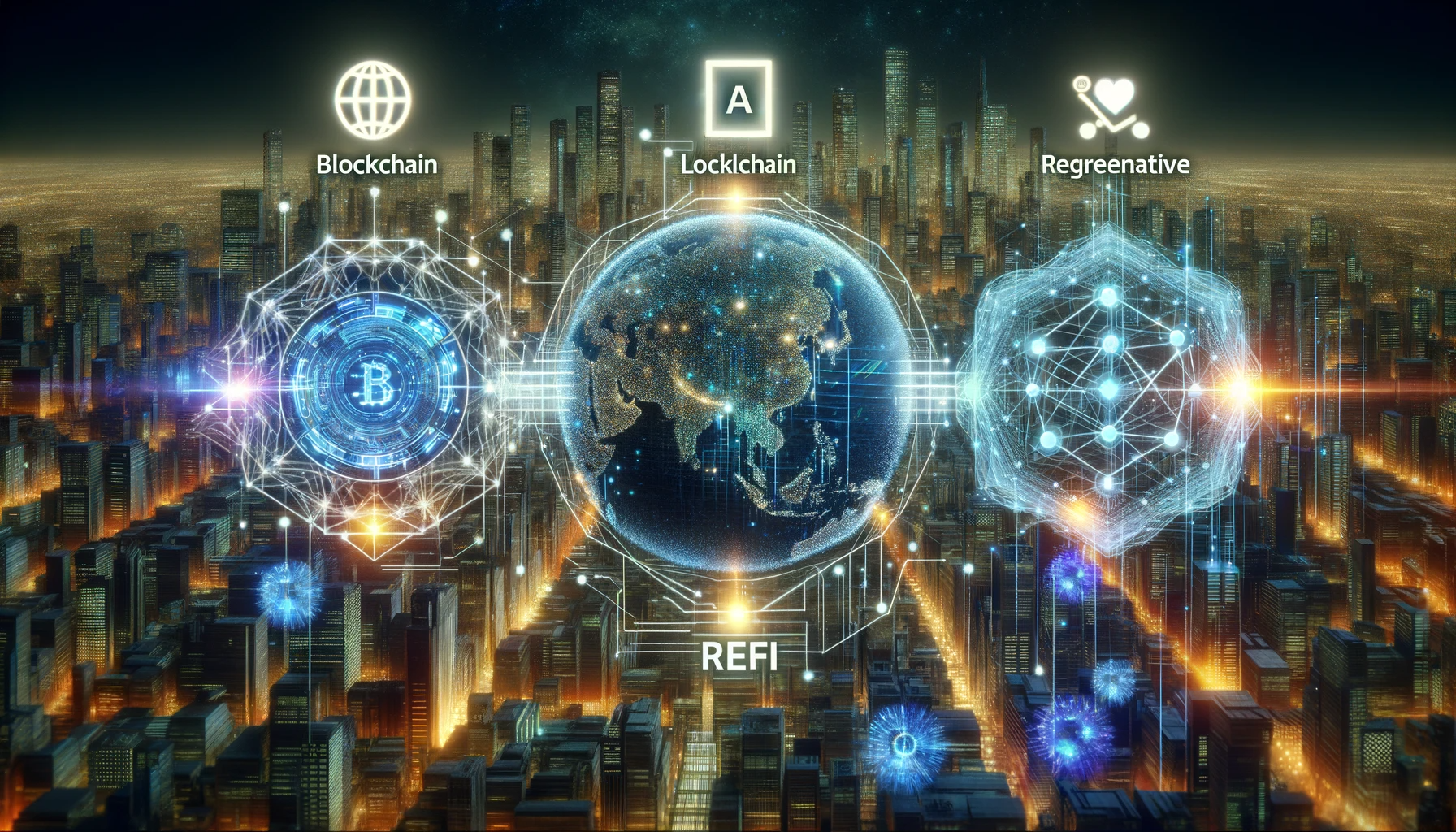Leveraging Blockchain and AI
The integration of blockchain and artificial intelligence (AI) technologies into regenerative finance (ReFi) offers transformative potential for sustainability and ethical finance initiatives. With a focus on positive environmental and social impact, ReFi is a movement that aims to use decentralised finance (DeFi) to create a more sustainable and equitable economic system. Here’s how blockchain and AI can specifically support ReFi initiatives:
Blockchain Technology in ReFi
Transparency and traceability: Blockchain enables real-time tracking of financial transactions and investments through its inherent transparency. This can prove the ethical use of funds, ensuring that investments are directed to truly sustainable and regenerative projects.
Smart contracts for automation:
Smart contracts can automate many aspects of financial transactions and agreements. They can ensure that funds are released only when specific, pre-defined conditions related to sustainability goals are met. This reduces the need for intermediaries, lowering costs and increasing efficiency.
Tokenisation of natural assets:
Blockchain enables the tokenisation of natural assets (e.g. forests, water bodies) by representing them as digital assets. This makes it easier to invest in and trade these assets. This could potentially channel more funds into conservation and regeneration efforts.
Decentralised finance mechanisms (DeFi):
DeFi platforms can democratise access to finance. They allow grassroots sustainability projects to raise investment directly from a global pool of investors. This broadens the scope of potential funding for projects that may be overlooked by traditional finance.
Carbon credits and trading: Blockchain can streamline the issuance, tracking and trading of carbon credits, making the process more efficient and transparent. As a result, there is an incentive for companies to invest in sustainability projects to offset their carbon footprint.
AI technology in ReFi
Predictive analytics for impact assessment: AI can analyse vast amounts of data to predict the potential environmental and social impact of investments, guiding decision-making towards projects with the highest regenerative potential.
Efficiency Optimisation
Using machine learning algorithms, AI can optimise how various projects use energy and manage natural resources, improving their sustainability.
Automated monitoring and reporting:
AI tools can monitor the progress and outcomes of funded projects and automatically generate reports on their environmental and social impacts. This reduces the workload for human analysts and improves the accuracy of impact assessments.
Improved risk assessment:
AI can assess the risk profiles of ReFi investments by analysing patterns and trends in environmental, social and governance (ESG) data. This helps investors make informed decisions, balancing potential returns with the sustainability of their investments.
Market analysis and forecasting:
By analysing market trends and data, AI can identify emerging opportunities for sustainable investments, helping ReFi platforms and investors stay ahead of the curve in supporting innovative regenerative projects.
The integration of blockchain and AI into ReFi will not only increase the efficiency and transparency of sustainable investments, but also open up new avenues for funding innovative projects that aim to regenerate and preserve the environment. This synergy can significantly accelerate the transition to a more sustainable and equitable global economy.
Regarding Article:Decarbonization: Iris Energy’s Strategic Approach and Future Bitcoin Mining
(Content created on Web3 Builders is copyrighted by Web3 Builders. Please credit the source when quoting. You are advised to conduct your own research before making any investment decisions. Use provided information at your own risk.)

